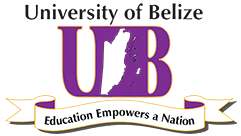- Version
- Download 427
- File Size 1.30 MB
- File Count 1
- Create Date January 29, 2018
- Last Updated January 30, 2018
UB Imprint Vol 03: Building Capacity Building and Strategic Partnerships for Ocean Acidification Research
Building Capacity Building and Strategic Partnerships for Ocean Acidification Research
By Mr. Jair Valladarez
Lecturer, UB
The International Atomic Energy Agency (IAEA) summarizes Ocean Acidification (OA) as “the series of chemical changes occurring as seawater takes up carbon dioxide from the atmosphere. While this uptake of carbon dioxide limits some of the effects of climate change, it will also modify marine environments, with potentially serious impacts on organisms and ecosystems.”
As anthropogenic Carbon dioxide dissolves into the oceans, it reacts with seawater to form carbonic acid. Average global surface ocean pH (“potential of Hydrogen,” a measure of acidity or alkalinity – lower numbers mean more acidity) has fallen from pre-industrial value of 8.2 to 8.1, corresponding to an increase in acidity of about 30%. Values of 7.8 to 7.9 are expected by 2100, representing a doubling of acidity.
Most information on the pH level comes from the open ocean. Nevertheless, the coastal areas, especially in Belize, experience countless sources of acid sources other than the atmospheric carbon dioxide that the open ocean is not directly exposed to. The contribution of the acid from point sources discharge, storm water runoff, erosion runoff, river input, and coastal upwelling will vary across time and space resulting in a high carbonate system variability.
The Effects of Ocean Acidification
Although being explored, the current understanding of pH and carbonate system variability in coastal areas is relatively poor, and an ability to accurately predict such variability into the future is lacking. Thus, understanding the current pH conditions (and associated carbonate chemistry) and the biological implications of coastal can help to elucidate and mitigate the impacts on marine ecosystems, fisheries and aquaculture.
Changes in pH and carbonate chemistry force marine calcifiers to spend more energy for physiological processes and may leave some organisms with less energy available for other key biological processes like growing reproducing and responding to other stresses. Many calcifying organism, such as corals, bivalves (i.e oysters, clams and mussels), crustaceans, algae and certain phytoplankton species are very sensitive to changes in pH and other carbonate chemistry. Additionally, the biological impacts of changes in ocean pH is species specific. Therefore, ocean acidification is a growing concern especially as it related to the biological communities, ecosystem services, and human well-being. Even more important is that the impacts of ocean acidification are closely linked to other stressors on species and ecosystems. Also, coastal acidification will occur at different magnitudes within coastal areas depending on regional processes, thus, it is necessary to address ocean acidification at a regional and site-by-site scale. The processes contributing to ocean acidification in coastal areas are much broader that atmospheric Carbon dioxide alone. There is a great degree of variability both spatially and temporally.
UB Responds to the Call for More Research in Ocean Acidification
There is a need for a robust scientific data gathering to fully understand the effect of ocean acidification to marine organisms, including species upon which the economies of coastal communities depend, and to inform policy action. Ocean acidification will affect fisheries and aquaculture dependent coastal communities in several ways. In Belize there is a scientific and policy needs for information-gathering on ocean acidification and its ecological impacts.
UB lecturer in the Faculty of Science and Technology, Mr. Jair Valladarez, participated in a project coordination meeting held in Vienna Austria from the 10th to 12th April 2017. Representatives from twenty-seven countries attended the meeting.
The overall goal of the project is to help build capacity to measure and study ocean acidification, and to connect countries and regions with an interest in this emerging environmental problem. The project aims to promote standardization of methodology, and to support and encourage capacity building, regional and inter-regional networking, collaboration and data sharing, and outreach to key stakeholders and to encourage collaboration between Member States.
During the meeting, possibilities for regional and interregional collaboration were discussed, and participants discussed data sharing and management efforts, as well as data synthesis products, gaps in capacity building, and possible outreach activities. After the discussion project work plans were adapted accordingly.
UB’s participation in this meeting arises from the University’s involvement in project INT/7/019 “Supporting a Global Ocean Acidification Observing Network towards Increased Involvement of Developing States”. The training is part of the efforts to build human and laboratory capacity at UB through participation in national, regional and inter regional projects funded by the Technical
Cooperation Program (TCP) of the International Atomic Energy Agency (IAEA). Currently, the University of Belize is executing National Project BZ7002 “Strengthening National Capacity for Measuring and Monitoring Marine Pollution and Studying the Effects of Ocean Acidification on Marine Ecosystems”.
The participation in this Network will strengthen UB’s capacity to perform OA work and will complement work under project BZE7002. Project
BZE7002 is a three-year project with funds of $248,800 Euros which is equivalent to $542,816 BZD for training and purchasing of laboratory instrumentation.
During the meeting, Mr. Valladarez was engaged in discussions on standardization of methodology and OA research kits with renowned experts in the field and presented UB’s and by extension Belize’s current capacities, gaps and future needs and opportunities for collaboration in OA work.
Strategic partnership between organizations, universities, and research institutions are essential to effectively identify and address research and knowledge gaps to facilitate the implementation of United Nations (UN) Sustainable Goals (SDG) target 14.3.
According to the United Nations Sustainable Development Goals target 14.3, it aims to “Minimize and address the impacts of ocean acidification, including through enhanced scientific cooperation at all levels”. States and competent international organizations and other relevant institutions, individually and in cooperation, to urgently pursue further research on ocean acidification, especially programmes of observation and measurement…” as stated in the resolution68/70 of the United Nations General Assembly.
In Belize, the Government and the University of Belize can build partnership and develop integrated projects. There is a pressing need to understand the impacts of ocean acidification on the biological, social and economic sectors as it relates to the coastal communities. Many such communities are vulnerable because they have fewer alternative livelihoods.
For further information on these projects you may contact Dr. Abel Carrias at [email protected] or Jair Valladarez at [email protected]





